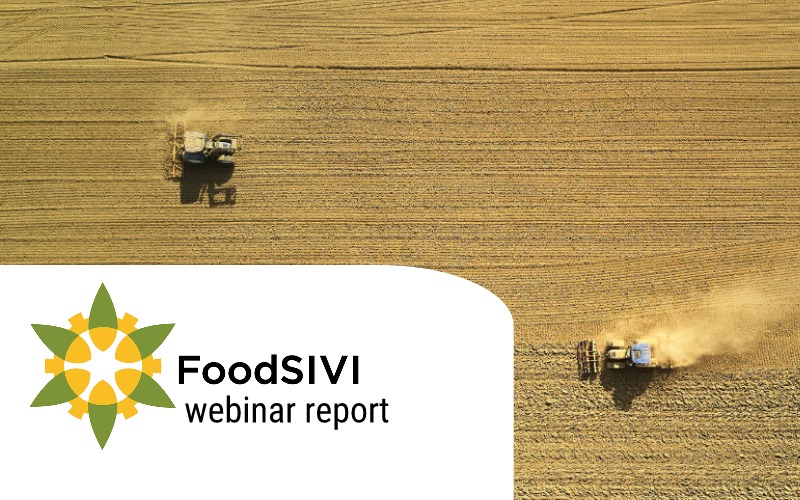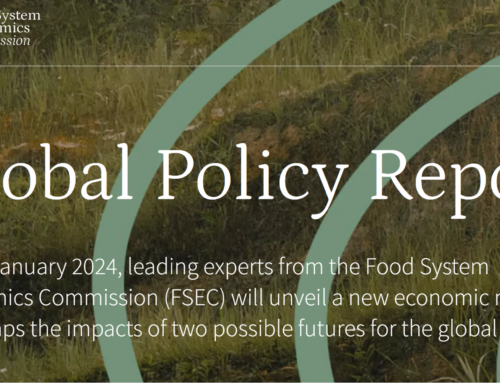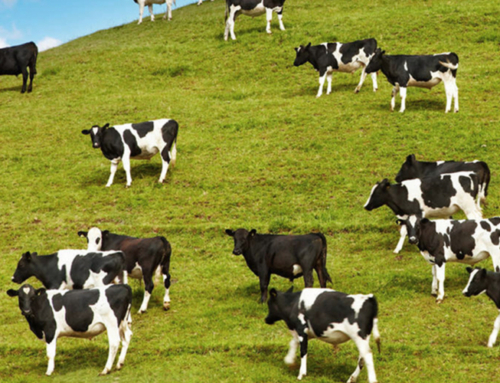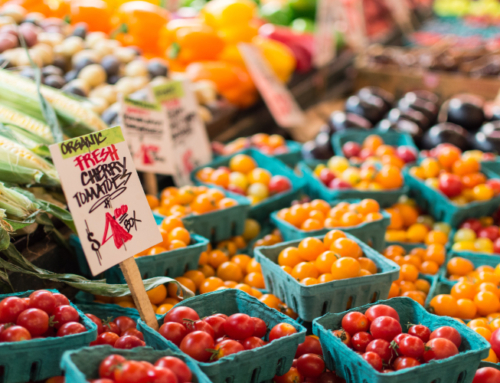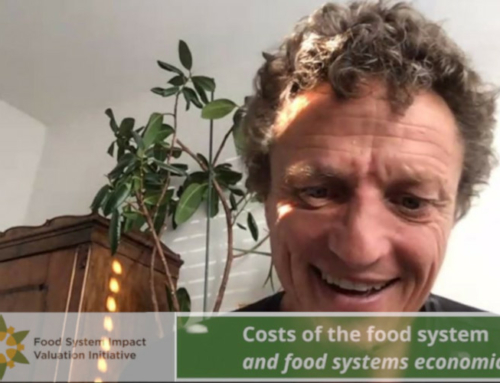FoodSIVI webinar on Corporate accounting and reporting of food sector impacts
The food sector is increasingly being asked to account for major environmental risks and societal impacts resulting from its activities. The second FoodSIVI webinar on 22 March 2021 featured leading developers of accounting and valuation methods for food system impact. If you missed it, here’s a summary of the main points from each speakers.
Standardising Impact Valuation – Christian Heller, Value Balancing Alliance (VBA)
Christian began the webinar by sharing how VBA is standardising a methodology for assessing an organisation’s impacts on nature, economy, and society along value chains.
VBA hopes to assess true value creation in enterprises, allowing the reflection of environmental, social, and corporate governance (ESG) factors in accounting systems, better information for holistic decision-making. VBA shared its aims to build a strong coalition to drive transitions to more sustainable economies, harmonise corporate sustainability reporting along the concept of double-materiality, and increase the standardisation of measurement. VBA has developed a practitioners’ lab to contribute to the future of accounting and business steering. As a growing pre-competitive alliance publishing open-source methodologies, it aims to co-create a level playing field across the world by sharing across a network of partners and assisting early implementation.
Centrality of Nature and People in Food System Transformation – Isabel Hoffmann, Capitals Coalition
Acknowledging the necessity of placing nature and people at the heart of all food system transformation, Isabel discussed the value of employing a capitals approach for non-financial accounting and business decision-making. The capitals approach uses the natural capital protocol and the human and social capital protocols developed by business and civil society.
The approach allows for a tangible assessment of key dependencies of a business and identifies transition pathways for improving sustainability and socio-economic outcomes. Isabel explained that the protocols allow decision making to account for essential dependencies for businesses, valuing impacts and dependencies for understanding relative importance, and exposing shared risks and opportunities of a system. Through a collaboration of stakeholder organisations across the world, the Capitals Coalition is focused on including the value of nature, people, society, and the economy in decision-making to deliver a sustainable and socially just world. The TEEBAgriFood for Business project aims to put nature and people at the centre of food system transformation by engaging with food business and governments in seven countries.
Download Isabel’s presentation (PDF, 7.4Mb. Opens in a new window)
Corporate Accounting and Reporting of Food Sector Impacts – Adrian de Groot Ruiz, The Impact Institute
Adrian discussed corporate accounting and reporting at organisational, investment, and product levels. At the organisation level, integrated profit and loss helps in understanding impact of all types of capitals for all stakeholders. This level of analysis can contribute to thinking on safe and just operating spaces and the SDGs. Reporting at this level focuses on how value can be created for key stakeholders, how activities contribute to sustainable development and how external costs can be avoided. At the product level, true cost will include the market price, and environmental and social costs across a range of different factors. The Impact Institute aims for an open-source method of true pricing, recommends a harmonisation across multiple initiatives working in the true pricing and accounting space, and for Public Private Partnerships to have an internally accepted method. Adrian explained that the Institute offers detailed guidance on key indicators, monetisation factors, and a true price database.
Download Adrian’s presentation (PDF, 3.9Mb. Opens in a new window)
Impact Data and Supply Chain Decision Making, Koen Boone, Director of The Sustainability Consortium (TSC) and Coordinator for Sustainable Value Chains at WUR
Koen examined how TSC integrates impact data in supply chain decision-making. A key part of TSC’s offers is The Sustainability Improvement System (THESIS) that provides comprehensive full life cycle information over all sustainability themes, assessment on hotspots, and opportunities for all consumer product categories. From working with many large food firms, including the world’s largest retailer, Walmart, Koen explained that insight from THESIS can stimulate innovation and continuous improvement, and minimise costs by global harmonisation and alignment with leading initiatives. THESIS’s data and insights can be used by a variety of different food system stakeholders across multiple scales and sectors and functions to raise awareness of key challenges and opportunities coming down the track. TSC’s innovation projects further assist food system stakeholders by providing metric-based analyses on key themes, initiatives, and interventions. Sustainable Value Chains at WUR complements THESIS by conducting experiments with various interventions and develops roadmaps on how true pricing can contribute to developing a sustainable food system.
Download Koen’s presentation (PDF, 2Mb. Opens in a new window)
The next webinar, Impact Valuation Practice and Potential, takes place on 8 June 2021.
FIND OUT MORE AND BOOK YOUR PLACE

